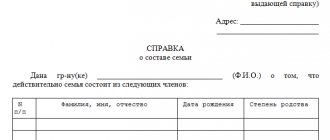Citizens often live together without formalizing the relationship. They are considered cohabitants who are in a civil marriage. At the birth of a common child, it is important to correctly issue a birth certificate, indicating not only the mother, but also the father. From the moment children are born, both parents have both rights and responsibilities. Disputes naturally arise as to whether illegitimate children , although according to current legislation they are the direct heirs of mom and dad.
Rights of an illegitimate child
The rights of the child are determined by two fundamental state documents (Codes):
- Family (FK);
- Civil (GK).
Article IC equalizes the rights of minors, regardless of the circumstances of their birth, and Chapter 11 of this document states that all of them have the right:
- to be brought up and grow in a family;
- communicate with mother and father;
- receive the necessary protection;
- supported financially and morally by both parents;
- express a point of view regarding family decision-making;
- be endowed with a surname, name and patronymic, personal property.
Inheritance law is an integral part of the legal interests of a minor, even if he was born and raised separately from his parents.
Article 53 of the Family Code of the Russian Federation “Rights and obligations of children born from unmarried persons”
Inheritance rights of illegitimate children
According to Art. 1142 of the Civil Code, when distributing property, children are the first-priority candidates, in addition to the mother, father and spouses; the following are not taken into account:
- circumstances of legitimacy;
- fact of biological relationship or adoption;
- age characteristics;
- separate or joint residence with the testator.
The main thing that is important to ensure the right of an illegitimate child to claim an inheritance is biological kinship or documented adoption.
Article 1142 of the Civil Code of the Russian Federation “Heirs of the first stage”
General provisions
Domestic legislation provides for two ways to enter into inheritance of property:
- law;
- testamentary.
The specifics of the inheritance rights of illegitimate children depend on the presence of a will.
Is it possible to claim an inheritance for a child born out of wedlock?
A person born (or adopted) outside a marriage can receive part of the property, regardless of the method of inheritance.
But the father has the right to deprive him of such an opportunity by indicating this circumstance in the will. If the will of the deceased is absent, an illegitimate applicant can enter into inheritance rights by proving the fact of biological relationship after submitting to a notary:
- birth certificates;
- documentary evidence of adoption;
- a court decision based on the results of a biological examination, witness testimony and other legally recognized evidence of relationship with the deceased.
Important! The evidence base is taken into account by the court only if it is obtained in a legal manner.
Obtaining a mandatory share
The allocation of this share is possible for all children of a deceased citizen upon official establishment of paternity, because they are obligatory heirs. To do this, the following requirements must be met:
- the child under 18 years of age ;
- a son or daughter may receive a compulsory share after reaching the age of majority if they are recognized as officially disabled .
Attention! The rights of illegitimate children to inheritance according to Art. 1149 of the Civil Code, assume that they can receive at least half of the property, even if there is no father’s will.
How to confirm paternity in order to receive an inheritance?
Confirmation of paternity is regulated by Art. , RF IC and is achieved:
- voluntarily - through the registry office;
- forcibly - by court decision.
Read also: Testamentary disposition of deposit
The statement of claim is submitted by the immediate claimant or his mother.
Article 49 of the Family Code of the Russian Federation “Establishment of paternity in court”
Article 50 of the Family Code of the Russian Federation “Establishment by the court of the fact of recognition of paternity”
Registration through the registry office
In case of voluntary recognition of the child, the mother and father submit an application to the government agency in the prescribed form No. 12.
Sample form No. 12
It is accompanied by:
- applicants' passports;
- certificate from the maternity hospital;
- birth certificate;
- receipt of payment of the state fee.
If the mother died earlier, lost her parental rights or disappeared without a trace, the father is allowed to apply with the additional provision of documentary evidence of consent to adoption.
Through judicial review
If the baby was born in a civil marriage or three hundred days after the official divorce, if the father refuses to apply to the registry office, the relationship is proven in court.
When the applicant for an inheritance reaches the age of majority, he has the right to file a claim independently. Otherwise, this is done by the child’s guardians, trustees or keepers.
Arguments
The court is obliged to take into account any of the presented evidentiary documents obtained without violating the law:
- results of genetic studies;
- personal records (including email correspondence);
- Confirmation of paternity recorded by the parent on social networks - photographs, representations, etc.;
- audio recordings of telephone conversations;
- witness statements confirming the cohabitation of mother and father;
- evidence of the deceased’s financial care for the baby in the form of payment documents for the purchase of toys, clothes, etc.
The listed evidentiary materials have varying degrees of weight and are considered by the court taking into account the complex of documents presented.
If the court considers the arguments presented sufficient and approves a supporting resolution, the heir must obtain the appropriate certificate from the registry office.
The procedure for establishing paternity.
Let's look at this issue in more detail.
Who can file for paternity?
- This can be done by the mother of the child.
- Any of his legal representatives.
- Representative of the guardianship service.
- The child himself, when he turns 16 years old.
This is usually done if the legal father does not want to admit that he has something to do with the birth of the child.
A claim is filed, it is considered, and a DNA examination is carried out. Additional evidence includes conversation records, letters, and witness statements. Any evidence can be presented in court.
The court will order an examination that will help establish blood relationships. If the father of an illegitimate child refuses a DNA examination, his action is interpreted in favor of the plaintiff: in this case, it is an illegitimate child.
Therefore, if a man finds himself in a similar situation, and is really sure that he is not the blood father of the child, conducting an examination is in his interests.
Establishing paternity by DNA: cost, through court, price.
Inheritance procedure for illegitimate children in the presence of a will
If there is a will of the deceased, the testator independently decides how to divide the property. Property can be transferred:
- legitimate descendants, with the exception of those born out of wedlock;
- in the reverse order - only illegitimate, bypassing the legitimate ones;
- in equal shares among everyone.
If the will is drawn up incorrectly, the document may be challenged in court.
Mandatory part
It is not allowed to disinherit illegitimate children from among the obligatory claimants at the time of the death of the testator:
- under the age of majority;
- disabled people (disabled people of the first - third groups);
- students of educational institutions, aged from eighteen to twenty-three years.
The amount of the obligatory share of the inheritance is half of what is required by law.
What is inheritance law?
The same rules apply to adopted children as to relatives:
- in any case, the minor child will receive his share (general or obligatory) in the inheritance;
- An adopted child can be recognized as an unworthy heir only when he reaches 18 years of age and only in court.
The procedure for disinheritance is discussed in detail in the material “How to recognize an heir as unworthy?”
Civil law as a legal branch has several branches, including inheritance law, which directly controls the process of inheritance between people.
From the point of view of jurisprudence, inheritance law gives a person the opportunity to regulate relationships where he is a full-fledged subject, even after his death.
The existence of inheritance law is explained by the fact that with the biological death of a person, legal death also occurs, which indicates that the person ceases to act as a subject of human legal relations. In this regard, it is necessary to resolve the issue of the rights and responsibilities that lay with the deceased person. They must go into someone's possession.
Thus, the entire inheritance procedure is based on the will of the deceased person. This applies to inheritance both by law and by will.
In fact, inheritance law can be used within the framework of not all rights that are given to a person by the state. Thus, rights that directly border the deceased person in civil terms cannot participate in the inheritance procedure. In most cases, this concerns personal non-property civil rights.
Thus, inheritance law directly controls the foundations of civil rights, which relate to the transfer of property from a deceased person to his legal successor.
Inheritance: rights of illegitimate minors
In order to claim inherited property, children born out of wedlock must prove this fact in court if the father deliberately denies it.
Evidence of paternity
Proving paternity is not a problem if a specific person is listed on the applicant's birth certificate.
But if the father is not indicated in this document, it is necessary to prove the relationship posthumously, since we are talking about the deceased. This is done in accordance with the judicial procedure described above. The claim is sent to the applicant's registered address.
Procedure for inheriting an illegitimate child
When the testator dies, those claiming the inherited property must submit their respective claims before the expiration of six months from the date of death. The application is sent to the state notary's office with a package of documents attached, which can be obtained directly from the notary.
Read also: How to discharge a deceased person from an apartment
If the filing of claims is late, the inheritance right of the illegitimate applicant is lost. The only way to obtain an extension of the six-month period is to provide valid evidence explaining the reason for the delay.
Inheritance of illegitimate children
The procedure for acquiring an inheritance is specified in Section V of the Civil Code of the Russian Federation. Legal successors are called in order of priority or according to the drawn up will.
Calling of illegitimate children under the law
When inheriting by law, the children of the testator are considered priority heirs (Article 1142 of the Civil Code of the Russian Federation). By filing an application for the right to inheritance, non-marital spouses will receive a share of property equal to the share of other applicants: the parents of the deceased; children born in marriage; legal spouse; grandchildren inheriting by right of representation.
The code does not specifically stipulate which children have the right to inheritance. Therefore, it is considered that the share of the deceased’s property is due to the children:
- born in marriage or outside of a formal union;
- relatives and officially adopted ones;
- living with the testator or separately from him;
- descendants in respect of whom the testator was deprived of parental rights.
The only condition for an illegitimate child to receive an inheritance is the presence of a document confirming the fact of relationship. The “father” column must include the person whose property is claimed by the illegitimate son or daughter.
Inheritance by illegitimate children under a will
During his lifetime, the testator has the right to draw up a will and designate what property and in what volume will go to certain legal successors.
The principle of freedom of will allows the owner of accumulated wealth to choose as heirs relatives, friends, strangers, organizations, the Russian Federation (the property will go to the state). Children out of wedlock can also be beneficiaries of a will. They will be able to receive their share if the document with the last expression of will is drawn up in accordance with the norms of the law, is not declared void, or is challenged in whole or in part of some points.
If the child is not indicated among the legal successors, he will be able to apply for his share as a mandatory heir.
Mandatory share of illegitimate children in the inheritance of the deceased
Illegitimate children can claim to be allocated a mandatory share of the deceased’s inheritance, even in the presence of a will, under the following conditions:
- age under 18 years;
- recognition of children as incapacitated, and age does not matter.
According to Art. 1149, if the father has made a will, the obligatory heir will receive at least half of what would be due to him by law.
Example. After the death of my father, I was left with an apartment bought during marriage. He bequeathed his half of the property (the second half is the wife’s marital share) to his legal wife, but at the same time he has 2 illegitimate sons, one of whom is 22 years old, and the other 5 years old. The youngest descendant will be the obligatory heir. In the absence of a will, he would have received 1/6 share of the property (the father's half would have been divided between his wife and 2 illegitimate sons), but since there is a will, he will receive 1/12 share of the property.
If in the above example the adult child were incapacitated, he would also be entitled to 1/12 of the apartment.
The nuances of inheriting property by an illegitimate applicant under 18 years of age
It must be taken into account that a minor does not have the right to independently claim rights to the inheritance.
The application to the notary must come from a legally competent citizen. Partial legal capacity begins for a teenager at the age of fourteen. A parent of an illegitimate child must take into account the following features in relation to issues of inheritance of property of a deceased spouse:
- there are no differences in the procedure for distributing inheritance between children born out of wedlock and during the period of officially registered marriage;
- if a minor is deprived of a share according to the will of a parent, he is entitled to a mandatory share;
- up to fourteen years of age, instead of a child, an application for inheritance is submitted by a parent or legal representative; after achieving partial legal capacity, the candidate is allowed to apply independently, with the consent of the guardians;
- in case of abandonment of property, if it is contrary to the interests of the minor due to the debts of the deceased parent or other circumstances, it is necessary to obtain the approval of the guardianship authorities.
An illegitimate child will be able to dispose of inherited property after reaching the age of eighteen. Responsibilities for the safety of property are assigned to guardians, subject to coordination of actions with state trustee bodies.
Rubric “Question/Answer”
My husband and I are divorced, but we live together. He is due to have a child with another woman this summer. What rights will he have?
Legitimate or illegitimate children have the same rights to the inheritance of their parents. Moreover, even if the father dies, but the child is not born out of wedlock, he is also entitled to a share in the inheritance. Children in the womb have the same rights to inheritance as the living children of the testator.
I have the following situation: I lived with a guy in a civil marriage (cohabitation), we had a daughter. According to the documents, he is the official father, and the child is registered in his apartment together with him. We separated and the child remained registered with him, and I myself moved in with my parents. I officially filed for alimony, but he didn’t pay for 5 years, and as a result, the debt grew. He then got married and has another daughter. I recently found out that the children's father died. Tell me, what should I do with his alimony debt and what should I do with the apartment where my daughter is registered? Do I have the right to claim it for my daughter’s future residence?
Two things stand out from your situation:
- Alimony. The death of the payer terminates the payment of child support - by virtue of Art. 120 IC RF. However, if there is debt, it will not disappear anywhere. If the heirs take over the property of the deceased, they will automatically inherit his alimony debts. You will have to answer in accordance with the share of the property received. You have a chance to claim arrears of alimony after the death of your father - to do this, you need to submit an application for calculation of the arrears to the SSP. The bailiffs will calculate how much your former partner owes. Then you need to file a claim for debt collection . The defendants in the lawsuit will be the heirs who received a share in the property after the death of the child's father. The court examines the case materials and makes a decision. It is best to contact a lawyer to competently draw up a claim and refer to relevant articles of the law, for example, Art. 1102, 1110 of the Civil Code of the Russian Federation and others.
- Child registration. Cohabitants are not included in any of the hereditary branches. Most likely, you will not get the apartment of your former partner, but the illegitimate daughter is the heir in the first place (Article 1142 of the Civil Code of the Russian Federation). If the deceased did not make a will, your daughter has the right to a share in her parent's apartment. At the same time, the father’s unborn child will have the same share. The wife is also applying for an apartment. Usually in this case it is necessary to divide the inherited property. One option is to negotiate peacefully and draw up an agreement on the division of the inheritance. But in any case, if the daughter is among the heirs by law, she will retain the right to register in the apartment of her deceased father . The main thing is to submit the application to the notary on time. If the child is 14 years old, he writes the application himself, and if not, the parent does it for him.
Thus, you will be able to collect alimony debts, as well as take care of your daughter’s entry into the inheritance of her deceased father. The key role is played not by cohabitation, but by the fact of paternity. Children inherit from their parents, regardless of whether they are born in wedlock or illegitimate.
The husband died, the children got the land. An illegitimate daughter appeared, but paternity has not been established. Can she sue part of the land plot?
Yes maybe. But to do this, she will have to file a claim for recognition of paternity (posthumously). If this happens, the current children-heirs will have to act as defendants. The illegitimate daughter must prove that the deceased voluntarily recognized her as his child during his lifetime. Be prepared for her to provide photos, videos, copies of letters, postcards, correspondence, and purchase receipts. There may also be testimony from relatives, friends, work colleagues and others. If the heir who appears does not apply to establish paternity (posthumously), there will be no problems. If she files and the court rules in her favor, the shares of the land plot will have to be redistributed taking into account the new applicant. The shares of current heirs will decrease.
Posthumous confirmation of paternity
The need for this action arises in the following situations:
- the marriage was not registered, but the parent participated in the life and upbringing of his son (daughter), but, due to his unexpected death, was unable to complete the documents at the registry office - Art. SK;
- the death of the father occurred before the birth of the baby, or the parent’s intention was not to become a legal parent - Art. SK.
Confirmation of the fact of paternity in both cases is carried out in court. The claim is sent in accordance with Art. 130-131 Code of Civil Procedure of the Russian Federation at the applicant’s registration address.
Article 130 of the Civil Procedure Code of the Russian Federation “Issue of a court order to the claimant”
Article 131 of the Civil Procedure Code of the Russian Federation “Form and content of the statement of claim”
Required Documentation
The claim is accompanied by a copy served on the defendant and any accompanying documentation indicating a direct biological relationship between the baby and the parent:
- a certificate from a medical institution confirming the timing of pregnancy and the onset of childbirth;
- the applicant's birth certificate;
- a photocopy of the document on the death of his parent;
- a written request to interview eyewitnesses or conduct research on genetic material.
The most reliable evidence is genetic testing.
Genetic research
In the event of the death of a parent, material from the deceased’s immediate family is accepted for genetic research.
But in their absence, exhumation is allowed in order to obtain genetic material for examination. However, this measure requires the consent of the judge, issued when considering the submitted petition. Read also: How to get a death certificate?
So, to conclude what has been discussed, is it possible to disinherit an illegitimate child:
- illegitimate children have the right to claim inheritance along with legitimate ones;
- Only the parent himself can deprive an illegitimate heir of this right, with an unambiguous interpretation in the drawn up will.
What does "illegitimate child" mean?
Cohabitation between a man and a woman can be short-term or long-term. During their time together, a couple usually has children.
An illegitimate child is a baby born to a man and woman who are not in a legally registered marriage.
Quite often, men agree to register the child in their name - this is how information about the father appears on the birth certificate of their son or daughter. In fact, such a union is identical to a legal family: there is a father, a mother, a common life, and both parents are indicated in the deed record. The only difference is the lack of state registration of marriage.
However, often fathers categorically refuse to go to the registry office and acknowledge their paternity. Especially if the cohabitation was short-term, and the man does not intend to start a family with the mother of the newborn. Information about the father is usually entered into the birth certificate from the words of the mother - this is a simple formality in order to give the child a middle name.
If paternity is not established and the biological father dies, the child cannot inherit his property . However, this does not mean that there is no way out - the problem can be resolved through the courts. The mother will have to file a claim to establish paternity (posthumously). From time to time, such issues are resolved during the lifetime of the parent. For example, in order to subsequently or simultaneously collect child support. If there is a judicial act, the heir will be able to unhinderedly assume his rights.
Examples of inheritance involving adopted children?
Citizen A. died without leaving a will. Of his close relatives, he had only two children left: a legally adopted daughter and his own son. The property includes a country house.
So, in this situation, the territory is divided. Each successor will receive 50% of it. The division can occur by meters or by financial resources from its implementation.
Citizen D. died, leaving behind an apartment. Of his close relatives, he has a legal wife and two children, one of whom has been identified. At the same time, the apartment was purchased jointly by marriage with his wife.
So, due to the fact that the property was purchased at a time when people were already officially married, the wife has the right to her half, that is, 50% of the entire territory. Accordingly, the remaining half will be divided between the two children. It doesn’t matter at all whether they are native or have been identified.
What is the inheritance process?
The process of inheritance is the basis of inheritance law.
Inheritance is the transfer of property, as well as the rights and obligations of the testator to his heirs.
As part of this process, several subjects of inheritance legal relations are distinguished:
- The testator who acts as the deceased person. It is his property and the rights and obligations associated with them that will be transferred to another entity. If inheritance occurs according to a will, a person becomes a testator not upon completion of its preparation, but immediately after biological death or after a court ruling on the legal death of a citizen. In this case, hereditary succession opens. These subjects may include both people living in our country and foreigners. Individuals living in Russia without a corresponding citizenship document are no exception. These nuances apply exclusively to individuals. If we are talking about organizations and companies, that is, legal entities, then it should be clarified that they do not leave inheritance.
- Heir, that is, legal successor. It refers directly to the person who accepts the property and all the rights and obligations associated with it. Any person can act as a successor in Russia: an individual or a legal entity. Companies and organizations can accept inheritance only if the inheritance process takes place in connection with an existing will. Moreover, the state or the city administration can accept the inheritance. Now even children who were not even born at the time of drawing up the will or directly at the opening of the inheritance, but were conceived before the death of the citizen, can act as heirs.
In the process of investigation, inheritance legal relations are formed, which both the testator and all his heirs enter into. The interpretation of their content, of course, contradicts the laws of logic, but, from the point of view of jurisprudence, the citizen actually participates in these legal relations, having expressed in advance his will on the sale of property and rights associated with them.
On one side of the situation there may be one subject, that is, a person directly, whose objects will be transferred to other comrades. The heirs will be the opposite subjects in terms of functions and content.
All these subjects enter into legal relations regarding a specific object, which is understood as property. Inheritance also includes rights and obligations that are directly related to things transferred by inheritance.
Jurisprudence defines the concept of inheritance as a set of property and non-property rights that are transferred in the process of inheritance from the deceased to his relatives in connection with the presence of a will or by law.
There are cases when a person does not have a will and there are absolutely no relatives who can or would like to accept his property. Then all property will be transferred to the state, namely to the ownership of the city municipality.
Such an outcome for property is possible if there are relatives, but they do not want to inherit and accept the property. In most cases, this happens due to an unwillingness to accept the responsibility and responsibilities that come with things. Often, the reason for rejection can also be some personal reasons of a person, consisting of banal pride or usually a lack of desire to care for someone’s objects.
Also, jurisprudence uses such a concept as an unworthy heir. You can become one if, according to a will, a person refuses to enter into an inheritance due to the fact that a certain set of conditions is attached to the property, obliging them to be fulfilled. If a person understands that he does not want to comply with the conditions for owning new things, he is deprived of the right to participate in the inheritance process.







